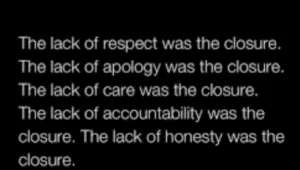The Best Inspirational Quotes for Co-Parents
Toxic co-parenting Quotes .When broken relationships transform into collaborative parenting arrangements, the manner in which co-parents navigate this transition often determines whether children flourish or struggle. What makes inspiring quotes truly effective isn’t their ability to create a perfect illusion of togetherness, but rather how they acknowledge the strained reality while pointing toward mature solutions. Consider how different families approach the concept of teamwork—some co-parents remain friends despite divorce, while others maintain boundaries fraught with bitterness yet still focus on consistent upbringing.
The real secret lies in discovering that respect doesn’t require love, and effective communication doesn’t demand traditional marriage binds. Selfless behavior becomes the bridge that enables kids to move freely between homes without confusion, where both parents honor the shared purpose of raising wonderful human beings. These quotes serve as an anchor, grounding co-parent decisions in what truly matters—the welfare and security of the child, not the egos or resentment from chapters that have ended.
The psychology behind inspirational wisdom reveals that co-parenting isn’t a competition between two separate lives but a combination of commitment and persistence. When relationships break up, parents face a choice: let anger dictate their actions, or realize that their son or daughter deserves to see adults who can come together for family days even though they’re not together romantically.
Fortunate co-parents learn that working out differences means putting the kid first, prioritize their well-being over pointing out each other’s faults. The positive difference appears when children grow older and realize their parents made parenting work through thoughtful effort rather than maintaining the hate of a failed relationship. Really great co-parent behavior involves treating your ex with integrity, acknowledging their kindness, and creating stable environments where kids know they’re loved very much by both sides.
This approach prevents alienation and builds a narrative where different homes represent security blankets, not battlegrounds—where consistent rules enable flourishing rather than fraught situations, and where the best interest of the child always comes first, revolves around their needs, and stands as the united standard that binds co-parents in their shared mission.

20 Quotes to Help You Co-Parent with Respect
- “Respect in co-parenting doesn’t mean you need to pretend everything’s easy or that the break-up never happened.”
- “Effective communication starts when you make a conscious choice to honor the other parent’s role in your child’s life, even on days when trust feels impossible.”
- “The key isn’t to force understanding it’s recognizing that boundaries serve as protection for your wellbeing while still allowing cooperation around what matters most: your children’s happiness.”
- “When you communicate openly about custody arrangements or school recital schedules without blame, you’re not being weak you’re showing strength through action rather than letting emotions dictate every movement.”
- “Respect means uplifting the connection your kids have with both parents, acknowledging that they deserve to see care from each side without feeling like they’re constantly walking on eggshells.”
- “Your children should never be forced to choose between homes.”
- “Successfully raising well-balanced humans takes investing time in managing differences without badmouthing or trying to control what happens at your ex’s house.”
- “Real respect shows up when you focus on being a steady, loving presence instead of competing for your child’s affection through presents or creating guilt.”
- “The best co-parents realize that putting aside hate isn’t about forgetting the hurt it’s about protecting your child from becoming a pawn in adult conflicts.”
- “Boundaries work when both people hold firm to agreed limits, whether discussing months ahead for holidays or just keeping the peace during bedtime transitions.”
- “This effort is your greatest investment in your child’s future.”
- “The proof lies in how your kids grow up seeing that love can transcend even divorce.”
- “Your children are always worth the hard work of collaboration, no matter what.”
- “Respect isn’t about liking your co-parent it’s about honoring their relationship with your children.”
- “When you communicate with respect, you teach your kids that love doesn’t need to disappear after separation.”
- “Effective co-parenting means showing up for your child without letting past emotions control your present actions.”
- “Boundaries protect your peace while allowing your children the connection they need with both parents.”
- “The best gift you can give your kids is respect between their parents, even when it’s hard.”
- “Cooperation isn’t about being friends it’s about being focused on your children’s wellbeing above everything else.”
- “Respect in co-parenting is the conscious choice to put your children first, every single day.”

25 Celebrity Co-Parents Quotes
- When celebrity co-parents navigate divorce, their journey becomes a public display of both honour and struggle, with power dynamics between famous father and mother figures revealing how toxic behavior manifests in blended family structures
- Toxic co-parenting quotes often emerge from high-profile situations where control and boundaries get tested through constant media scrutiny, showing real-time emotional chaos
- Some celebrity parents demonstrate resilient cooperation, choosing to protect their children, while others engage in blame-shifting and manipulation that mirrors Christian parenting quotes about putting kids first
- The balance between maintaining presence as role models and dealing with absence of respect shows how even influence and wealth can’t shield from gaslighting or alienation tactics
- Their public narratives about shared custody and demanding schedules often hide the invisible wounds of boundary violations where unannounced appearances or weaponizing social media becomes common tactics
- Toxic co-parenting quotes surface when celebrities use lies to twist truth about their ex, turning love into competition rather than fostering unity for their precious creations
- What makes these situations exhausting isn’t the walking on eggshells but the step of recognizing when someone tries to exert control through guilt or shame
- The behaviour patterns reveal how toxic co-parent dynamics involve using pawns to gain grasp over situation, whether through badmouthing or spreading rumours
- Toxic co-parenting quotes capture these harsh realities where intrusive demands and blame become way of conveying hurt rather than pursuing healthy connection
- Celebrity co-parenting shows unfair challenges where actions must speak louder than words to show stability and genuine care despite attempts at turning public opinion
- The strength required to rise above cruelty and demeaning tactics while maintaining consistency demonstrates that healing is possible even when facing slowest erosion of trust
- Their stories about nurture and providing safe space despite conflicts offer inspiring lessons on building relationship that stands firm against emotional abuse
- The opportunity to excel as co-parents exists when they decide not to let controlling efforts dictate their parenting approach, instead fostering environment where both can take active investment in their future
- Through hard work and honestly addressing difficult struggles, some manage to create understanding where brokenness once dominated
- The ultimate gift they can give is showing patience and fiercely protecting peace while never allowing disregard for limits or justifying hurtful conduct
- Whether navigating divorce aftermath or dealing with targeted attempts to break bond, their public presence offers both confusing examples and moments of clarity about what deserves kindness versus unfair treatment
- When alienation tactics try to bury reality, the truth eventually comes out through consistent showing up and being steady despite overwhelming obstacles
- These high-profile situations prove that reflection on own needs versus well-being of kids separates effective parenting from toxic patterns
- Intuition serves as greatest ally when someone refuses to take accountability for causing damaging effect on family life.

Quotes on Control and Manipulation
- Control dynamics within toxic co-parenting quotes often reveal how one parent may use emotional tactics to make the other question their own reality. When someone refuses to take accountability for their actions, they’re essentially running from the truth while making you doubt yourself. These games aren’t just frustrating—they’re a deliberate way to twist the narrative and shift blame. Remember, you’re not crazy for seeing through their manipulation; your sense of what’s true stands firm even when they try to change reality around you.
- The greatest sign of manipulation in toxic co-parenting quotes comes when a parent never takes responsibility but always finds a way to make it your problem. They’ll use lies, twist words, and create confusion to keep you questioning whether you know what really happened. Toxic co-parenting quotes highlight how this behaviour is designed to isolate and control—to make you believe you’re the one causing issues when they’re actually the source. But rise above their narrative: you’re a survivor, not the problem, and your strength will shine through no matter how much they try to bury it.
Quotes on Gaslighting and Blame-Shifting
- When you feel like everything you say gets twisted back at you, it’s how some people use their position to control the narrative. Toxic co-parenting quotes reveal that blame-shifting begins when reaction becomes weaponized you can’t talk about what’s best for the child without them making you the problem.
- This form of emotional abuse is subtle, incredibly damaging because it can convince you otherwise about your own reality. They say things like “you’re overreacting” or “that didn’t quite happen that way,” turning every communication into a minefield where you’re walking on eggshells.
- The scars are very real they may not leave physical bruises but still cause deep harm to your self-worth. Toxic co-parenting quotes often highlight how this way of manipulation works: lies and distorted truths become their use to bring you down, it is the first reminder of how control operates.
- They don’t let you show up as the parent you want to be, always putting you on the defensive about what actually happened. It’s a slow erosion that leaves you questioning whether you can even trust yourself.
- Understanding toxic co-parenting quotes helps you see through these violations because they imply your concerns aren’t real or that you need to work harder at communication when the other parent refuses honesty.
- They try to turn the child against you through badmouthing, then blame you for the conflict they created, making demands while simultaneously showing no accountability. This cycle can feel overwhelming, but remember you’re stronger than their distortions.
- The truth has a way of coming out patience will always win because the child eventually sees through manipulation. You don’t have to care about their narrative; your actions speak louder than any blame they shift. Stay true to yourself, keep doing what’s right for your kid, and know these tactics say more about them than you.
- Setting boundaries about how you communicate is essential it’s not weakness, it’s standing your ground for your own sanity. The kind of parent who uses gaslighting puts their own needs above the child’s first, and that difference will become clear as time goes on. You deserve to live without being constantly blamed, and recognizing this is a sign you’re on the right path toward healing from years of this abuse.

Quotes on Alienation and Badmouthing
Badmouthing isn’t just hurtful words thrown around it’s a slow form of emotional abuse that leaves deeper wounds than we realize. When one parent tries to twist reality, causing the child to doubt their own sense of love from the other parent, it’s incredibly isolating for everyone involved. These actions reveal more about the parent who badmouths than the one being targeted it shows their inability to put their children first. Toxic co-parenting quotes capture this painful reality: badmouthing doesn’t just break down the relationship between two homes, it creates a confusing narrative where kids can’t believe what they know to be true.
I’ve seen how one parent may convince a child that the other is bad, all while using words as weapons to take away the child’s right to their own memories. This isn’t about who’s got favor or who will win some competition it’s about the scars we leave on young minds that are very real, even if they don’t show bruises.Toxic co-parenting quotes remind us that when you use your child against their other parent, you’re not keeping them safe you’re gaslighting them into believing a twisted version of reality.
The strongest antidote to alienation is allowing your child to love freely, even when it’s hard and you’ve been hurt. Badmouthing becomes this common way to make the other parent seem weak, but in reality, it only makes you look like someone who can’t let go of the break–up. I’ve faced situations where co-parents totally forget that their words have consequences where badmothing becomes so easy that they don’t see how stressful it is for the child to navigate between two distinct versions of truth.
Toxic co-parenting quotes are a testament to the fact that what you do in these difficult years will be remembered forever. Children always deserve both parents without the painful burden of having to choose sides, and they’ll eventually see the difference between who tried to empower them and who tried to take their self-worth. Keeping boundaries and being the parent who doesn’t engage in badmouthing takes courage it’s not a sign of weakness but of strength.
FAQs
Q: How do toxic co-parenting quotes highlight the damaging reality when one parent tries to tear down the other?
Toxic co-parenting quotes show how badmouthing really hurts more than we think—it harms both the bond with your child and the way they see who you are as a person. These words highlight that no amount of trying to bury or break someone down can undo their shine, and it only reveals your own inability to let go of what’s over.
Q: What responsibilities should parents understand about boundary violations and tough situations?
When co-parents cross the line with violations that matter beyond their own space, they need reflection on how barriers are allowed to exist in life for everyone’s wellbeing. It’s tough to apply boundaries, but knowing when to set them is a testament to your courage and understanding that difficult times don’t mean giving up on respect.
Q: Can celebrity examples like those from Drew Barrymore, Jennifer Garner, and Miranda Kerr help us navigate co-parenting?
Celebrities like Drew Barrymore, Jennifer Garner, Miranda Kerr, Chris Pratt, Kate Hudson, and Idina Menzel have been in the Hollywood scene where high-profile break–ups come with everything on full display, yet they find a way to work together. Their visions show that even when you’re overwhelmed by the end of a relationship, being composed and putting your children first is what works best and that’s the main narrative we should imply in our own two homes.
Q: How do toxic co-parenting quotes address emotional abuse and the harm it can cause?
Toxic co-parenting quotes reveal that when someone tries to convince you otherwise about your worth or use games to hurt you, they’re not just causing emotional harm they’re creating the deepest wounds that can’t heal without patience and kindness toward yourself. It says more about their place of brokenness than anything you’ve done, so keep your head up and know a brighter ahead is there if you freely choose to put yourself first.
Q: What do inspirational quotes about co-parenting teach us about learning to repair relationships?
Effective co-parenting revolves around learning that a broken marriage doesn’t have to overshadow the greater goal of raising kids who feel loved by both mummy and daddy forever, even if the steps toward repair feel outside your comfort zone.
Toxic co-parenting quotes remind us that being a part-time visitor in your child’s life or thinking of parenting as a chequebook exchange are distinctions that mark the difference between men who want to be present and those who just do the minimum—honestly, it’s easier to jointly navigate when you’ve received the overarching message that your responsibilities resembles a book with chapters you write each day.

